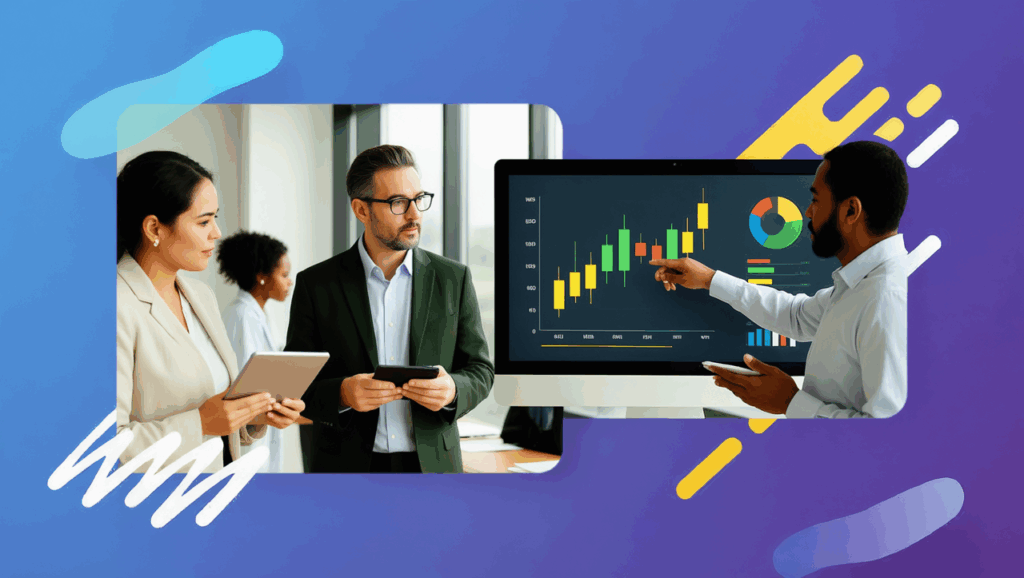If your company is still using desktop software or spreadsheets to keep track of its funds, you may want to start considering moving your accounting to the cloud.
Cloud accounting makes it possible for people to work from anywhere, at any time and was made to make work easier by automating time-consuming manual processes.
Cloud accounting software (like SoftLedger) contains multiple benefits including improved accuracy, compliance, and efficiency. Additionally, they can authorize stakeholders can see up-to-date, accurate financial information from any location.
Some systems have more advanced features that involve sophisticated automation of accounting tasks like financial consolidation and reporting. That being said here are the top benefits that come along with cloud accounting systems:
1. Cloud Accounting is Incredibly Scalable
Scalability is a real game-changer for the cloud. A developing company may find it difficult to keep track of its finances using spreadsheets, and desktop accounting programs sometimes have a restricted feature set that can be a burden to growing companies.
Startups with growth aspirations, for example, shouldn’t be forced to use a technology they will outgrow in the near future. However, thanks to cloud accounting software, it’s possible to start with simple accounting operations, then add more users and advanced accounting features like subledgers or multiple-entity management during growth.
2. You Get a Real-Time View Into Your Business
With cloud accounting services, users gain access to their businesses’ financial reporting in real-time. This helps you to make informed strategic decisions about your business’s financial future, as well as determines any potential problems currently holding your company back.
With traditional methods of accounting, you have to scroll through long pages – only to get too out-of-date reports. Imagine having an issue within your company, but you don’t know what it is, or if it even exists. It could be a month, if not longer, after the problem occurred until it’s brought to your attention and resolved.
Unlike traditional accounting methods, with cloud accounting, you are able to catch these problems and resolve them quickly before they impact your business.
3. Your Data is Completely Secure
You may be feeling apprehensive about storing your company’s sensitive data on the internet. Leading cloud service providers however utilize powerful encryption and access controls to ensure that only authorized users have access to your data.
These access privileges can be set appropriately for each given responsibility, and your data is safe, no matter what happens to the system you are running them on, or the location you are running them from.
And lastly – lost or stolen laptops, or offices that take on fire or water damage, are no longer a worry. Your data is always safely backed up in the cloud, and will be there waiting for you to pick up where you left off.
4. Cloud Accounting Software Improves Accuracy
To improve accuracy, many of the error-prone manual tasks when using spreadsheets are eliminated by cloud accounting.
You can automate the matching of invoices and payments to shipments, the entire reconciliation process, and even compare internal transactions to bank records which help to flag mistakes.
5. Save Time and Taxes with Automation
So did we mention automation? Cloud solutions automate many accounting and banking procedures, minimizing human labor.
For example, a cloud accounting system can automatically input bank and credit card transactions, issue recurring bills, schedule reports, pay subscriptions, and record transactions to the right ledger. It can even automatically compute discounts and taxes, and identify exceptions where invoices don’t match purchase orders.
Finally, some cloud accounting applications are particularly helpful for overseas sales, automatically managing taxes for numerous countries.
6. Less Admin Work
Business owners often worry about time-consuming procedures around technology. For example, the lift of software installation, remembering daily backups, and other forms of administration.
Cloud accounting however can be operated from anywhere with an internet connection. So there is no need to acquire and operate servers or other IT equipment just to run your accounting software. You also don’t have to conduct frequent backups of essential financial data – your cloud accounting hub automatically provides that for you.
The more time you save on administration tasks, the more time workers can spend on the activities that build your organization and help it prosper and grow.
7. Access Your Financial Data from Anywhere
One of the most sout after benefits of cloud accounting software that truly sets it apart is its flexibility. It allows users to access financial data from work, home, or on the go. They can be confident in the knowledge that they have an up-to-date, real-time view of how the business is performing, no matter where they are.
Unlike traditional accounting methods, software updates can be delivered easily and efficiently. There is no need to download or install anything onto a computer. As your business grows, there are no huge price increases and far less maintenance. The cloud provider will automatically complete all updates and backups for you.
When using a traditional accounting method, every time a business grows, they run into greater software, maintenance, and hardware costs. New hardware or servers are a huge capital expense, and in the future, if they decide to switch to cloud accounting, they will be stuck with permanent, expensive equipment and licenses.
Cloud accounting is worth considering for any business – whether you’re a sole proprietor or a multi-national conglomerate. It eliminates human error, increases accuracy and efficiency, and frees up time you can use to focus on more important activities – like building your organization and promoting the fast growth that all businesses strive for.
Book a demo here to learn how our cloud accounting system can support your business.



